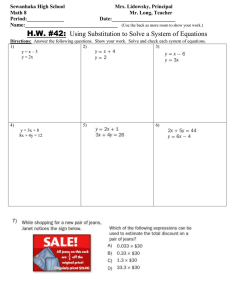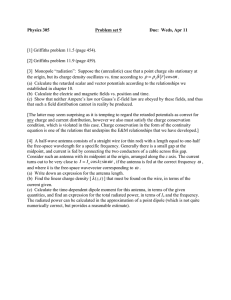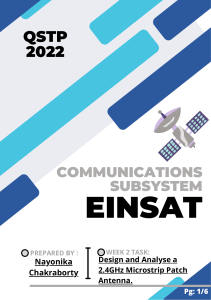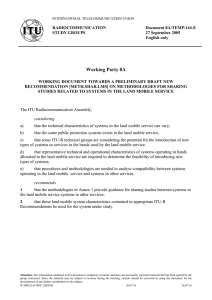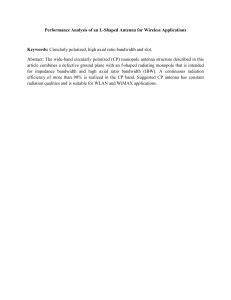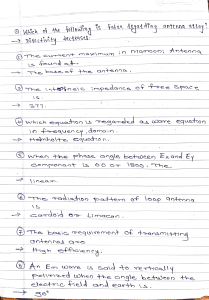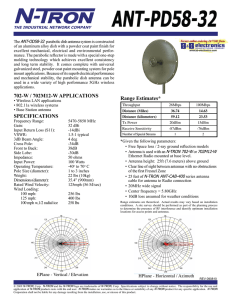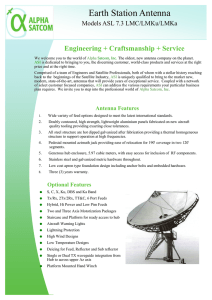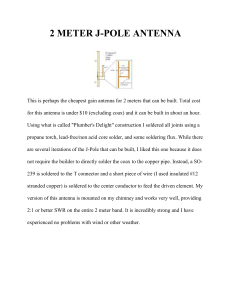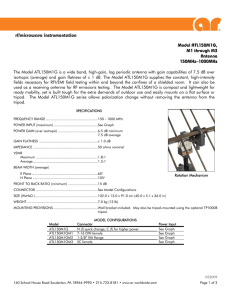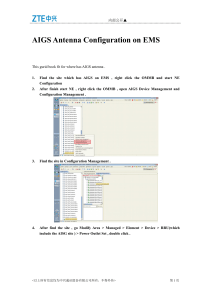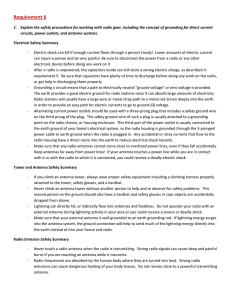KING FAHD UNIVERSITY OF PETROLEUM & MINERALS Electrical Engineering Department EE380
advertisement
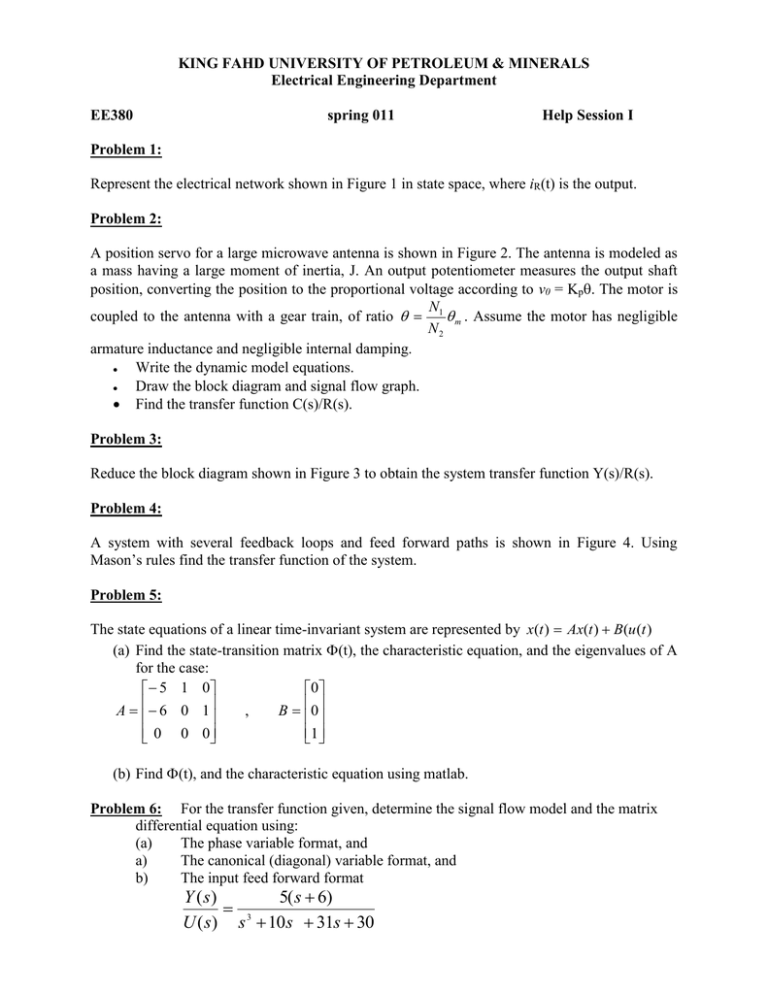
KING FAHD UNIVERSITY OF PETROLEUM & MINERALS Electrical Engineering Department EE380 spring 011 Help Session I Problem 1: Represent the electrical network shown in Figure 1 in state space, where iR(t) is the output. Problem 2: A position servo for a large microwave antenna is shown in Figure 2. The antenna is modeled as a mass having a large moment of inertia, J. An output potentiometer measures the output shaft position, converting the position to the proportional voltage according to v0 = Kp. The motor is N coupled to the antenna with a gear train, of ratio 1 m . Assume the motor has negligible N2 armature inductance and negligible internal damping. Write the dynamic model equations. Draw the block diagram and signal flow graph. Find the transfer function C(s)/R(s). Problem 3: Reduce the block diagram shown in Figure 3 to obtain the system transfer function Y(s)/R(s). Problem 4: A system with several feedback loops and feed forward paths is shown in Figure 4. Using Mason’s rules find the transfer function of the system. Problem 5: The state equations of a linear time-invariant system are represented by x(t ) Ax(t ) B(u (t ) (a) Find the state-transition matrix (t), the characteristic equation, and the eigenvalues of A for the case: 5 1 0 0 A 6 0 1 , B 0 0 0 0 1 (b) Find (t), and the characteristic equation using matlab. Problem 6: For the transfer function given, determine the signal flow model and the matrix differential equation using: (a) The phase variable format, and a) The canonical (diagonal) variable format, and b) The input feed forward format Y ( s) 5( s 6) 3 U ( s) s 10 s 31s 30 Figure 1 Figure 2 Figure 3 Figure 4
